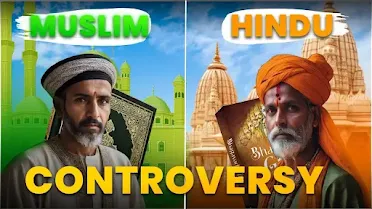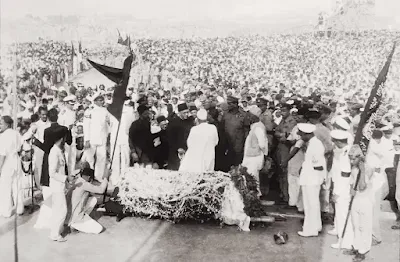Pakistan Resolution 1940
The Main points of Pakistan Resolution Day on 23rd March 1940
- Separate independent Muslim States
- The Muslim League should be recognised as representative of Muslims in India.
- Muslims should be recognized as a nation.
 |
| Pakistan Resolution 1940 |
The Congress on the following two principles
- Congress should recognize the Muslim League as the representative body of Muslims in India.
- The Muslims of India should not be taken as merely a minor community. On the other hand, they should be recognized as a nation.
The Congress did not give any importance to these basic principles on which a compromise between the two big political organizations could conclude. This was the reason that all efforts exerted by the Muslim League for an alliance with Congress ended in smoke. Moreover, the recent two years of Congress rule proved that Congress was not a national organization but was purely a Hindu body. The event shows that during its rule over India, it worked based on hostility against Muslims.
 |
| Pakistan Resolution presented in Iqbal Park Lahore |
Muslim Hindu Controversy
By the end of the nineteenth century, the Muslims had come to the belief that Muslims and Hindus could never live together and any hope for Hindu-Muslim unity was not fated to be materialized such thoughts were many times expressed both individually and collectively by Muslims quarter.
 |
| Hindu Muslim Controversy |
Muslim thinkers from time to time diverted the attention of Muslims toward separatism. Their names are Allama Iqbal, Jamal-ud-Din Afghani, Sir Syed Ahmad Khan, Chaudhary Rahmat Ali, Muhammad Abdul Qadir Bilgrami, and Maulana Hasrat Muhani are especially notable in this connection. These Muslim thinkers after having minutely studied the affairs of the Muslim community of India reached the conclusion that the only way to the establishment of peace in the subcontinent was to raise the 45 status of Muslim majority provinces to an independent state. This thought of separatism gradually gained popularity among the Muslims in India.
Demands of the Muslim League
In the preliminary days of the Second World War, the Muslim League demanded that no constitution should be enforced unless it got the approval of the Muslim League, that fifty per cent of the total representatives of the Central Legislature would be given to the Muslim League, and that rights of Muslims in the Muslim minority provinces would be safeguarded. The Viceroy in his announcement indirectly accepted the demands of the Muslim League in respect of the introduction of a future constitution and the safeguards of Muslims in the Muslim minority provinces. In fact, in the prevalent war situation, the British Government did not want to annoy either of the two big political parties i.e. Congress and the Muslim League. Muslim League was satisfied with the British Government that if demands were not accepted a non-co-operation movement would be launched. It demanded that the powers of constitution-making should have resided in the Central Legislature in which congress members formed a majority. In this state of affairs, it became imperative for the Muslim League to decide about its future program. The Quaid-i-Azam tried to bring home to the British Government that the powers of constitution-making were conferred on the Hindu Majority. They establish a Hindu Rule over the country. This would not be acceptable to Muslims and as a result, there would be every danger of an outbreak of civil war on a large scale throughout the country. A resolution adopting the two-nation theory had already been passed by the Provincial Muslim League.
Two Nation Theory
Based on the two-nation theory the Prime Minister of Bengal Maulvi A.R.Fazal-ul-Haq moved the following resolution:
 |
| Two Nation Theory |
- It is the considered view of this session of the All India Muslim League that no constitutional plan would be workable in this country or acceptable to the Muslims unless it is designed on the following basic principles.
- That geographical contiguous units are demarcated into regions which should be so constituted will such territorial readjustment may be necessary. The areas where the Muslims are numerically in the majority as in North Western and Eastern zones of India should be grouped to constitute independent states in which the constituent units shall be autonomous and sovereign.
- Adequate effective and mandatory safeguards should be specially provided in the constitution for minorities in the units and in the regions for the protection of their religious, cultural, economic, political, administrative, and other rights and interests in consultation with them and in a majority adequate, effective and mandatory safeguards shall be specially provided in the constitution for them and other minorities for the protection of their religious, cultural, economic, political, administrative and other rights and interests in consultation with them.




